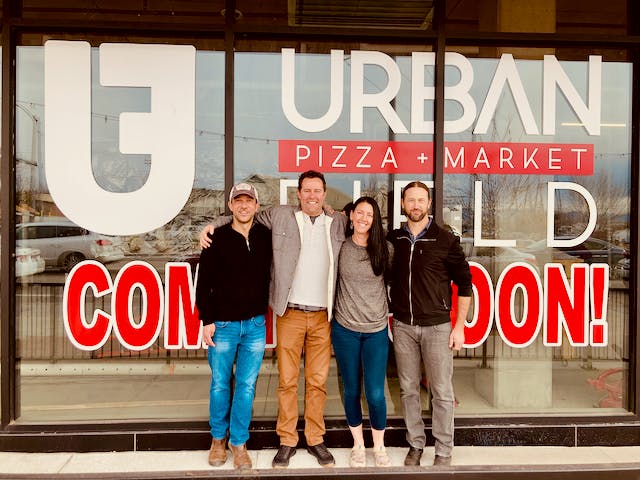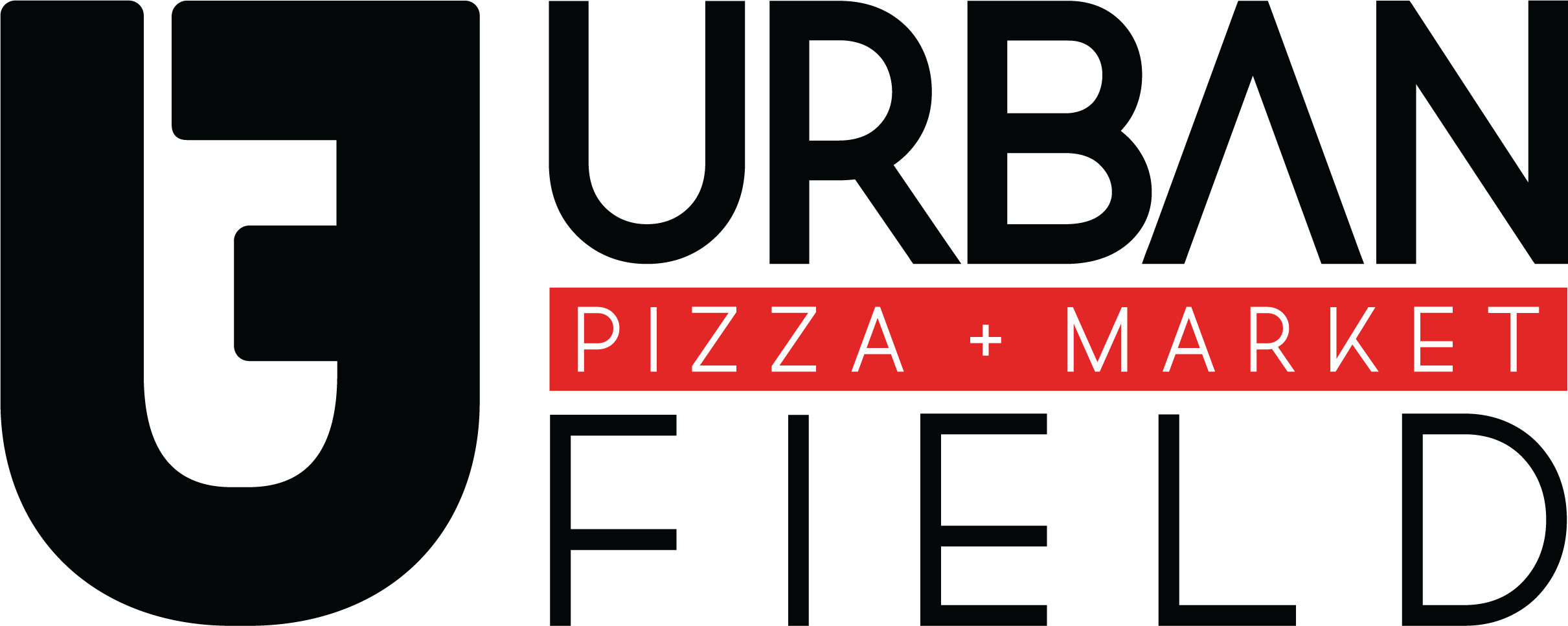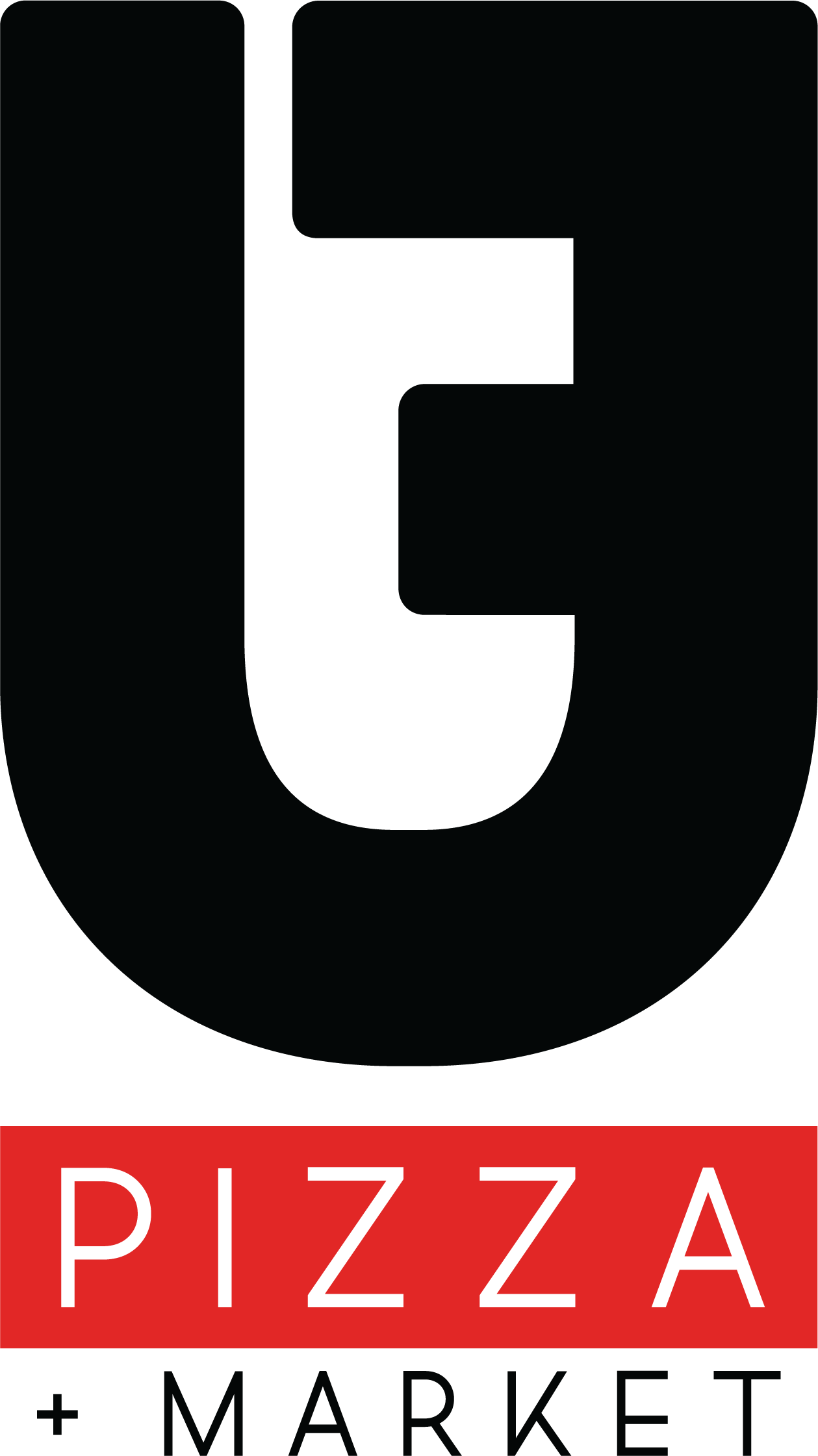#4: Our Greatest Resource

When Lindsey Beddard approached us to see if there was room on the Urban Field team for her, Nick and I offered her equal partnership immediately. I opened two restaurants with Lindsey during the nine years we worked together at the Mountain Sun. She speaks hospitality fluidly like a native language and is simply the best I’ve ever seen in a dining room. Lindsey created cultures at our pubs that changed peoples’ lives. If she asked her team to jump off a cliff, they would with absolute certainty she had figured out the landing.
As though we didn’t have enough chefs in the kitchen as it were, we shockingly sought out a fourth partner, Darrin Gilman. He was not an easy sell, but the chef and I kept at it. It took two weeks, but we eventually convinced him to join us. Darrin was an owner and operator of PastaVino in Boulder and employed Chef Swanson prior to Nick’s Mountain Sun days. Simply put, Darrin’s a cocktail stud, and we needed one of those. The Urban Field team was complete. The combined experience of this group in the restaurant industry… 91 years.
At our kick-off meeting, we cemented the first core value of the company—to always exceed employee expectations concerning compensation, benefits and work culture. To be able to achieve that goal in a new concept, we knew we would have to be the lowest paid management team in the history of hospitality. High labor is currently the number one killer of restaurants, which is ironic because even introductory level workers are hard to find. 76% of restaurant workers who recently quit their jobs or simply never returned after lockdown cited low wages. 78% of those workers said they would have remained at their jobs if they received a stable, livable wage.
In the months and years leading up to the pandemic, this work-force frustration was palpable in the restaurant industry and beyond. In 2017, Colorado voted to increase its minimum wage over the course of the next four years by 44%. Denver City Council took it a step further in January, 2020, deciding to up the city’s minimum wage 55% over that same time period. There was talk in Denver and Boulder of even more increases.
I don’t know a single restaurant owner who doesn’t want his or her team members to earn more. But this was a lot very quickly, made worse by an extended boom of restaurant openings that was saturating markets and slashing sales. Operators were at a loss. While restaurants continued to multiply, the number of eateries closing every month started to climb. Service surcharges began popping up on checks to absorb some of the wage hikes, including a clever one designed to supplement the hourly wage in the kitchen—The Back-Of-House-Beer Fund. The traditional restaurant model is suffering from labor-induced cardiac arrest. While surcharges might be temporary life support, they’re unlikely to sustain our industry for long.
At Urban Field, we are searching not for one solution to this problem but many because that’s what it’s going to take. Food service anchored in the warm embrace of hospitality is facing a menacing future. There’s no quick rebound for restaurants as the pandemic recedes because the industry was sick when the virus arrived.
For the Urban Field team, our efforts began with our people. We recognized that we are infinitely committed to our folks because simply put it’s the right thing to do. We knew we would need a historic team to take on the daunting challenges crippling hospitality, so we began crafting plans to create conditions and culture that nurture contentment, creativity, ambition, and ingenuity. Most of the great ideas born in restaurants, we reasoned, don’t come from owners or managers but from team members operating the systems that keep the shift afloat.
To start, we dedicated ourselves to offering the highest wages in the industry, paid time off, sick leave, company-sponsored health insurance, a flexible four-day work week, monthly expense accounts in our market, and an environment conducive to learning and growing. We knew when we set this bar—and we know now as we attempt to reach it—that this commitment not just to our managers but to our entire staff is what will make or break us.
I’m convinced the greatest asset in a company is its employees. I’m also convinced a team is essentially an extension of its leaders. When our partnership team solidified, I was most excited because these are restaurant professionals who lead as servants. When no one hesitated to accept that to move forward we would all need to take several steps back, I knew this team was first and foremost concerned with the well-being of its employees. That’s important because by putting our people at the front of this company, I believe we will create work culture that fosters new ideas and a work environment where employees learn and grow. By building conditions for a rewarding and productive work life, our focus on our people becomes a guest-facing stance.
To conclude his last late-night broadcast, Conan O’Brien wisely said: “It’s not easy to do, but try—try and do what you love with people you love. And if you can manage that, it’s the definition of heaven on earth. I swear to God, it really is.” Amen brother.

